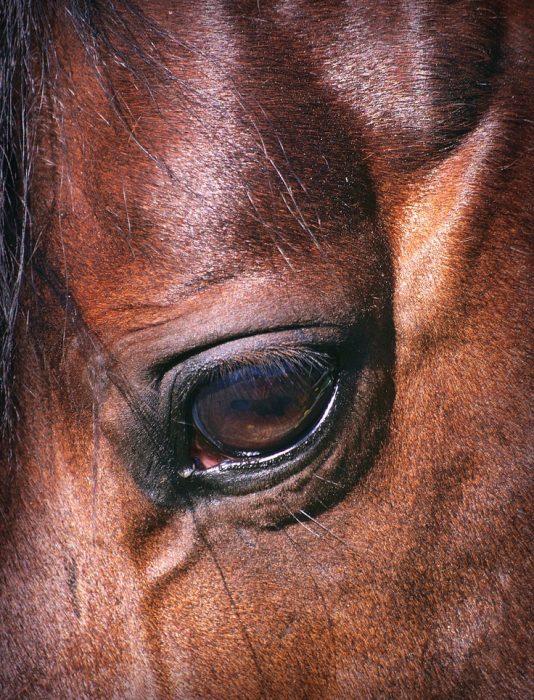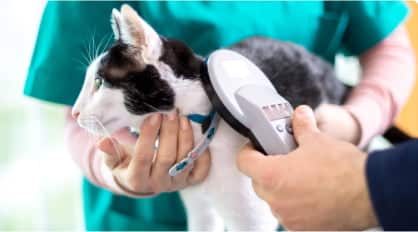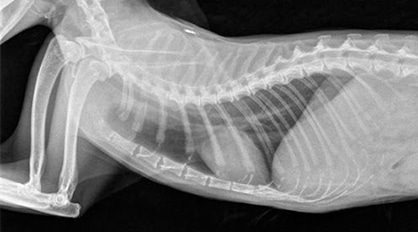Because we care
At Noah’s Ark Veterinary Services, we are passionate about supporting the healthcare needs of your pets. Our equipment and facilities enable us to carry out a wide range of diagnostic checks, including blood pressure monitoring, X-rays and pathology. We are also able to administer essential vaccinations. Rest assured, our friendly Port Stephens vets will answer any questions you may have and explain the process in detail. We’ll treat your pet as though it were our own.
If you’d like to book an appointment at our Medowie vet practice, don’t hesitate to contact us today. You can call us on (02) 4982 9899. We also provide surgery, animal rehabilitation services, general wellness checks and much more.

We vaccinate all of our feline patients with an F3 vaccination that contains feline panleukopenia, feline herpesvirus and feline calicivirus. Cats will receive three initial vaccinations as kittens then an annual vaccination to maintain the required immunity.
Feline panleukopenia or feline enteritis is a highly contagious viral disease of cats caused by a feline parvovirus. This virus will attack cells that are rapidly dividing such as the intestine and bone marrow. Symptoms include depression, loss of appetite, severe uncontrollable vomiting and diarrhoea leading to dehydration.
Feline herpesvirus or feline rhinotracheitis is one of the common viral infections that causes cat flu. This herpesvirus will cause severe upper respiratory signs, including conjunctivitis, that typically last for up to 2-3 weeks. All cats once infected become carriers for life and can periodically show clinical signs in times of stress or illness.
Feline calicivirus is the second common cause for cat flu that will cause upper respiratory signs and ulcerations of the tongue and mouth. Once infected, most animals will show clinical signs for 2-3 weeks. piscing elit. Ut elit tellus, luctus nec ullamcorper mattis, pulvinar dapibus leo.
We recommend that all of our canine patients receive a C7 vaccination which includes canine parvovirus, canine distemper, infectious hepatitis, bordetella bronchiseptica, parainfluenza and canine leptospirosis. Dogs will receive three initial vaccinations as puppies and annual boosters to maintain the required immunity.
Canine parvovirus is a highly contagious viral disease that can affect all ages but causes a serious life-threatening disease in young puppies. This virus attacks the replicating cells in the intestine causing severe bloody diarrhoea, uncontrollable vomiting, loss of appetite, and a fever. Dogs can die from severe malnutrition and dehydration despite intensive veterinary care.
It is not necessary to have direct contact with other dogs for the disease to be spread. The virus is highly resistant and can persist in the environment for many years. This is why we recommend that your puppy stays away from public areas until they are fully vaccinated.
Canine distemper is a highly contagious viral disease that can affect the respiratory, gastrointestinal and nervous system. Due to this, symptoms can vary but can include fever, coughing, sneezing, nasal discharge, vomiting, diarrhoea, loss of appetite and depression. As the disease progresses muscle tremors, seizures and paralysis can occur. Distemper is often fatal and dogs that survive often have permanent damage to their nervous system.
This viral infection is highly contagious and is often fatal in young dogs. Symptoms can vary but often include fever, depression, loss of appetite, vomiting, diarrhoea and acute abdominal pain. Dogs that recover often develop long-term liver and kidney problems and are often infectious for 6 months.
Kennel cough or canine cough is a general term for a highly contagious condition causing upper respiratory disease due to either viral or bacterial infections. It can easily be spread whenever dogs congregate such as parks, shows, obedience classes and boarding kennels. Affected dogs have a dry hacking cough that can persist for several weeks. As part of our vaccination protocol, we vaccinate for two causes of kennel cough, Bordetella and parainfluenza.
Leptospirosis is a waterborne bacterial infection that can be spread between water sources by mice, rats and other rodents. Dogs can become infected after the bacteria enters the body via cuts, abrasions or through membranes of the mouth, nose or eyes. The bacteria can infect several organs in the body, especially the kidney and the liver. This leads to varied clinical signs such as lethargy, vomiting, diarrhoea, yellow eyes and mouth and changes on bloods. This can lead to a critical illness that is often fatal even with extensive treatment.
Leptospirosis is also a zoonotic condition, meaning that there is a potential risk for people to become infected. This can occur when they are exposed to the infected urine of affected animals.


We recommend that our rabbit patients receive a calicivirus vaccination. Rabbits will require a single initial vaccination from 10 weeks of age and an annual booster vaccination to maintain their immunity.
Rabbit haemorrhagic disease virus or calicivirus was released into the wild rabbit population by the Australian Government in 1996. Calicivirus is a fatal disease that infects the liver and the intestines of rabbits and causes severe bleeding. Other symptoms can include fever, lethargy and a reduced appetite. Calicivirus can survive in the environment for three to seven months and can be spread between rabbits by direct contact, contaminated foods or cages, insects and rodents.
In additional to vaccination, other options to reduce the risk of exposure include keeping your rabbits indoors, preventing access of wild rabbit population, good hygiene and regular cleaning and insect control.
We recommend that horses receive 2 different vaccinations: the 2-in-1 tetanus strangles vaccination and the Hendra virus vaccine. With the 2-in-1 vaccination, horses will require 3 initial vaccinations 2 weeks apart with an annual booster vaccination to maintain immunity. The Hendra virus vaccination requires an initial 2 vaccinations 4 weeks apart followed by a 6 month boost with an ongoing annual booster to maintain immunity.
Tetanus is a bacterial infection caused by Clostridium tetani that can be found in the environment for extended periods of time. The infection usually enters the body through puncture wounds that will produce a potent neurotoxin. This will cause progressively worsening muscular stiffness and spasms that often are exacerbated by loud noises and bright lights.
Strangles is a bacterial infection of horses caused by Streptococcus equi. This is a highly contagious disease that causes a sudden onset fever and loss of appetite. These clinical signs will then progress to cause severe swelling of the lymph nodes under the jaw and thick nasal discharge.
Hendra virus is a virus that infects fruit bats that can spread to horses. This virus can cause a variety of symptoms in horses. Usually there is a rapid onset of fever and can have a variety of respiratory, gastrointestinal or neurological signs. Once a horse is infected it can then transmit to humans causing an infection that is often fatal.

What We Offer

Abnormalities in blood pressure can often occur in our pets. As such, accurate monitoring is vital. These abnormalities can occur due to a variety of different disease processes, including kidney disease and cardiac disease.
Other situations that can alter your pet’s blood pressure can be while they are under an anaesthetic or due to age.
At our clinic, we have specialised veterinary equipment designed to provide pet blood pressure monitoring in Medowie.

Microchipping your pet is extremely important. It allows vets and animal shelters to identify them when they are lost or missing. It is necessary for you to ensure that all of your contact information is up-to-date on your pet’s microchip to guarantee
that you will be reunited.
If your pet is not microchipped, please give us a call to make an appointment today. We offer comprehensive pet microchipping in Medowie.

Diagnostic testing is extremely important to aid in the diagnosis and treatment of all of your pets. Our Medowie clinic is equipped to provide a variety of specialist veterinary laboratory services that can be performed the day of your examination.
These laboratory serves include blood chemistries, complete blood counts, blood clotting times, urinalysis and faecal analysis.
We also use an external veterinary pathologist for more advanced diagnostic testing, such as biopsies, cultures and infectious disease testing.

Radiographs (X-rays) are an important diagnostic tool used for your pets. Our Medowie clinic is equipped with a state-of-the-art X-ray machine that can produce excellent quality images for all animals big and small.
After a complete physical examination of your pet, our veterinarians can determine if your pet requires radiographs.
What happens when my pet is booked in for radiographs?
Our patients will be admitted into our hospital for the day for the radiographs to be taken. We ask that you bring your pet unfed in the morning as they may require sedation or anaesthesia to allow us to obtain the best quality radiographs as possible.
Once the radiographs have been taken we will give you a call or book an appointment for our veterinarians to discuss the diagnosis and our recommended treatment plan for your pet.
After a complete physical examination of your pet, our veterinarians can determine if your pet requires radiographs.
What happens when my pet is booked in for radiographs?
Our patients will be admitted into our hospital for the day for the radiographs to be taken. We ask that you bring your pet unfed in the morning as they may require sedation or anaesthesia to allow us to obtain the best quality radiographs as possible.
Once the radiographs have been taken we will give you a call or book an appointment for our veterinarians to discuss the diagnosis and our recommended treatment plan for your pet.

Vaccinations are important for the prevention of a variety of infectious diseases in our pets. To ensure your pets are able to maintain their immunity against these diseases ongoing booster vaccination are required. We provide pet vaccinations in Medowie.
Contact our friendly team to book an appointment!
Monday
Tuesday
Wednesday
Thursday
Friday
Saturday
Sunday
9:00am – 5:00pm
9:00am – 5:00pm
9:00am – 5:00pm
9:00am – 5:00pm
9:00am – 5:00pm
By Appointment
Closed
Animal Referral and Emergency Centre: 1300 838 669
Native Animal Emergencies: 0418 628 483